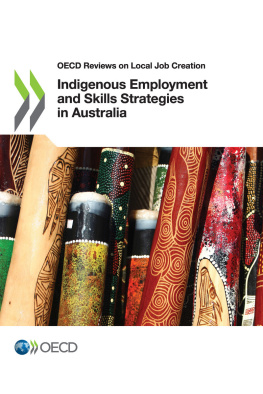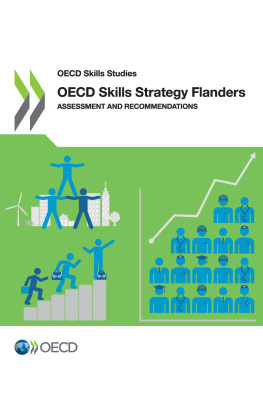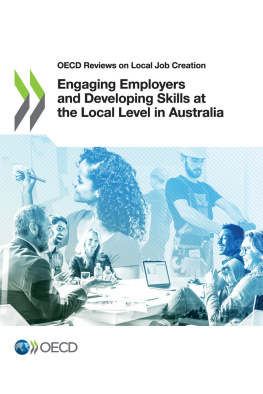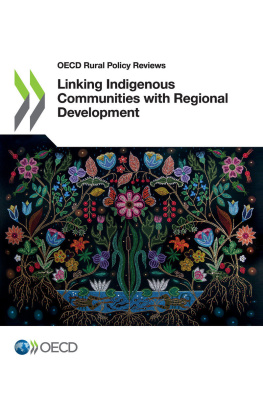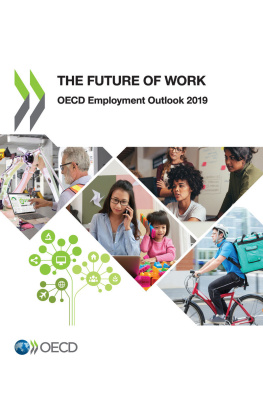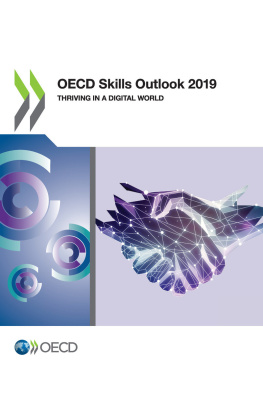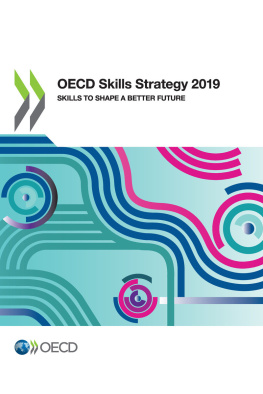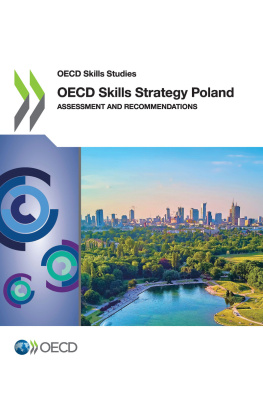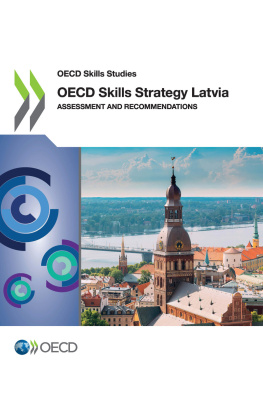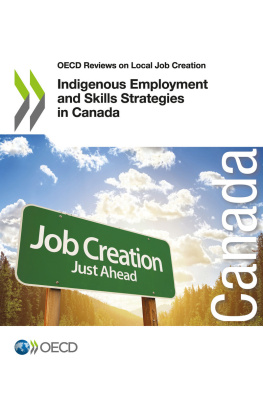OECD - Indigenous Employment and Skills Strategies in Australia
Here you can read online OECD - Indigenous Employment and Skills Strategies in Australia full text of the book (entire story) in english for free. Download pdf and epub, get meaning, cover and reviews about this ebook. year: 2019, publisher: OECD Publishing, genre: Politics. Description of the work, (preface) as well as reviews are available. Best literature library LitArk.com created for fans of good reading and offers a wide selection of genres:
Romance novel
Science fiction
Adventure
Detective
Science
History
Home and family
Prose
Art
Politics
Computer
Non-fiction
Religion
Business
Children
Humor
Choose a favorite category and find really read worthwhile books. Enjoy immersion in the world of imagination, feel the emotions of the characters or learn something new for yourself, make an fascinating discovery.
Indigenous Employment and Skills Strategies in Australia: summary, description and annotation
We offer to read an annotation, description, summary or preface (depends on what the author of the book "Indigenous Employment and Skills Strategies in Australia" wrote himself). If you haven't found the necessary information about the book — write in the comments, we will try to find it.
OECD: author's other books
Who wrote Indigenous Employment and Skills Strategies in Australia? Find out the surname, the name of the author of the book and a list of all author's works by series.
Indigenous Employment and Skills Strategies in Australia — read online for free the complete book (whole text) full work
Below is the text of the book, divided by pages. System saving the place of the last page read, allows you to conveniently read the book "Indigenous Employment and Skills Strategies in Australia" online for free, without having to search again every time where you left off. Put a bookmark, and you can go to the page where you finished reading at any time.
Font size:
Interval:
Bookmark:
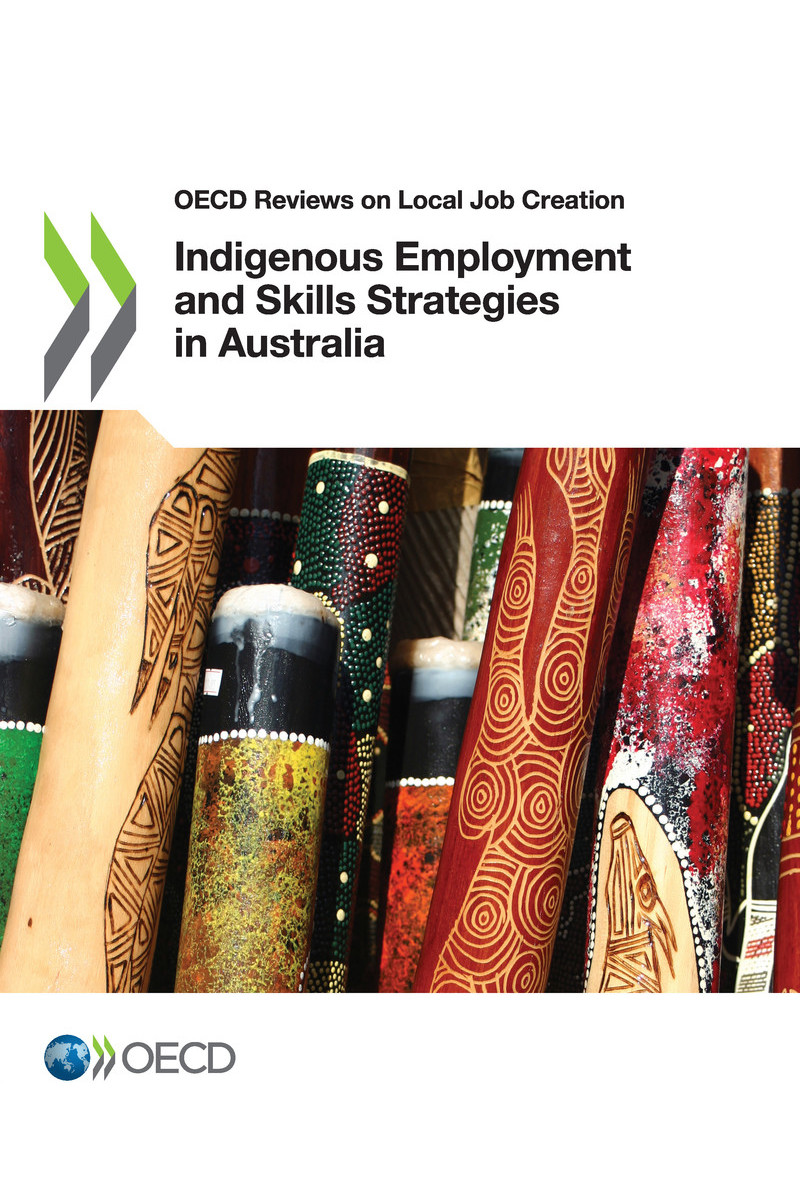
OECD (2019), Indigenous Employment and Skills Strategies in Australia , OECD Reviews on Local Job Creation, OECD Publishing, Paris, https://doi.org/10.1787/dd1029ea-en .
There are around 38 million Indigenous people across 12 OECD countries. Too often, they face large gaps when looking at economic, employment, and social measures. Improving access to labour market and training opportunities can enable Indigenous people to harness their potential, while building a stronger and more inclusive local economy.
Ensuring that Indigenous people have access to good employment opportunities is a clear priority for the Australian Government. A series of targets have been introduced under the Closing the Gap initiative to deliver better education and employment outcomes. In 2018, four of the seven targets expired and since this time, Commonwealth, State and Territory governments have agreed to a Closing the Gap Refresh, which places a priority on working closer with Indigenous Australians to co-design and implement the next phase of targets.
To get people into work, the Department of Employment, Skills, Small and Family Business manages a number of employment programmes including jobactive - a network of employment service providers that operates in 1 700 locations across Australia. Indigenous Australians have access to jobactive as well as a range of other targeted programmes and services, such as Vocational Training and Employment Centres, Disability Employment Services, and Transition to Work. The Australian Government is set to roll out a new employment services model in 2022. This OECD report hopes to inform potential new directions for the design of employment services, especially as it relates to improving outcomes for Indigenous Australians.
This report considers both quantitative and qualitative data regarding employment, skills, and entrepreneurship opportunities for Indigenous Australians. Case studies focusing on local employment and training organisations in Sydney, New South Wales and Perth, Western Australia were undertaken to better understand how programmes are being implemented to match Indigenous Australians to jobs. In-depth interviews were undertaken with Olympus Solutions Limited, Replay, the Yarnn Aboriginal Employment Service, atWork Australia, the Wirrpanda Foundation, the Aboriginal Employment Consultancy Group and PEEDAC. Results from this study were also discussed at a joint OECD-Department of Employment, Skills, Small and Family Business workshop in October 2018 at the National Centre for Indigenous Excellence, bringing together a number of the case study representatives as well as other Indigenous community leaders across Australia.
This report is part of a wider body of work on Indigenous people within the OECD Centre for Entrepreneurship, SMEs, Regions and Cities. This report is part of the OECD Reviews on Local Job Creation, which is included in the Programme of Work and Budget of the OECDs Local Economic and Employment Development (LEED) Programme. Throughout this report, the term Indigenous Australians is used to encompass both Aboriginal Peoples and Torres Strait Islander Peoples.
This report has been prepared by the Centre for Entrepreneurship, SMEs, Regions and Cities (CFE), led by Lamia Kamal-Chaoui, Director. This work was conducted as part of the OECDs Local Economic and Employment Development (LEED) Programme with financial support from the Australia Department of Employment, Skills, Small and Family Business.
The project is co-ordinated by Jonathan Barr, Head of the Employment and Skills Unit within the Local Employment, Skills and Social Innovation (LESI) Division of CFE under the supervision of Karen Maguire, Acting Head of Division. The principal authors are Jonathan Barr and Lindsey Ricker (OECD/CFE). Michela Meghnagi (OECD/CFE) and Alessandro Kandiah (OECD/CFE) also made significant contributions to this report.
Australian Government officials within the Department of Employment, Skills, Small and Family Business played an instrumental role in helping the OECD to co-ordinate this project, while also providing constructive feedback on the development of the report. In particular, the OECD would like to thank Ali Jalayer, Niran Gunawardena, Sean Tam, and Wayne Murray. The OECD would like to thank representatives from the National Indigenous Australians Agency, including Sarah Burr, Sarah Clough, Mele Rome, and Jennifer Badstuebner.
The OECD would also like to thank Phil Loveder and Glenn Varona from the National Centre for Vocational Education Research (NCVER) for providing information on vocational education and training statistics. Special thanks should also be given to Indigenous stakeholders in Sydney and Perth that participated in meetings and provided documentation and comments critical to the production of the report. In particular, the OECD is grateful to representatives from Olympus Solutions Limited, Replay, the Yarnn Aboriginal Employment Service, atWork Australia, the Wirrpanda Foundation, the Aboriginal Employment Consultancy Group, and PEEDAC.
Lastly, the OECD would like to thank those individuals who participated in a workshop on designing local employment and skills strategies with Indigenous communities in Australia in Sydney in October 2018, namely Tanya Eldridge and Nick Purdie from Aboriginal Affairs, New South Wales; Rob Beattie and Andrew Yarran from AtWork Australia; Peter Defteros, Jobs Australia; Aunty Beryl, National Centre for Indigenous Excellence (NCIE); Sally Sinclair, National Employment Services Association; Suzie Matthews and Michelle McCallum from New South Wales Department of Industry; Annette Lamb, Olympus Solutions Limited; Rebecca Harcourt, University of New South Wales; Brittany Jack, VERTO; Deb Nelson, Yarnn Aboriginal Employment Service; Robert Friskin, My Pathway; and Mary Jones, Replay Foundation.
Font size:
Interval:
Bookmark:
Similar books «Indigenous Employment and Skills Strategies in Australia»
Look at similar books to Indigenous Employment and Skills Strategies in Australia. We have selected literature similar in name and meaning in the hope of providing readers with more options to find new, interesting, not yet read works.
Discussion, reviews of the book Indigenous Employment and Skills Strategies in Australia and just readers' own opinions. Leave your comments, write what you think about the work, its meaning or the main characters. Specify what exactly you liked and what you didn't like, and why you think so.

